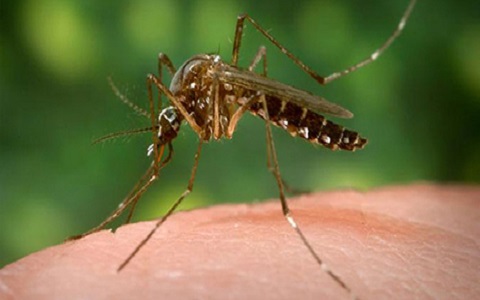

World mosquito day is observed annually to increase awareness on the importance of mosquito control.
It was originated in 1897 by Dr. Ronald Ross of the Liverpool school of tropical medicine.
Available records show that, over three hundred million cases of malaria occur worldwide each year and more than one million people die, most of whom young children in sub-Saharan Africa and Asia.
Research also revealed that Nigeria bears a greater malaria burden than any other country of the world as over three hundred thousand Nigerians die each year as a result of the disease.
It is of great concern that despite Nigerian government partnership with many international organizations, malaria remains the leading causes of death among children in country.
During pregnancy, the disease can pose a life-threatening risk to both the mother and babies.
Malaria also prevents adults and children from their daily activities such as going to work and school thereby contributing to economic hardship.
There is therefore need for environmental management which are responsible for malaria parasite.
This is because mosquitoes cause more human suffering than any other organism.
This can be done by clearing bushes around the house and other buildings to remove breeding sites and larvae of the mosquitoes.
Reliable and affordable diagnostic means for detection of malaria parasites is also essential to detect specific malaria antigens in a person’s blood if they are infected.
Although an improved understanding of the disease has led to more innovative preventive measures and medical treatments, it is very important that malaria elimination programme is strengthened to evolve relevant home grown means to achieve its goals.
In order to reduce the devastating effect of mosquitoes, the best ways of prevention are; the use of insecticide-treated nets, preventive treatment for pregnant women and infants, and indoor residual spraying.
Federal and state governments should also strengthen health systems and build the skills of health workers to manage malaria control activities.
In addition, there must be equal access to health management tools for malaria at all levels, and this must embrace educating patent medicine sellers and incorporating knowledge of traditional or herbal medicine practices.
To achieve the theme for this year’s world mosquito day which is ‘reaching the zero malaria target’ Nigeria needs to develop new interventions for malaria control suitable for the population.
Efforts should equally be geared towards drastic reduction of contact between humans and mosquitoes through surveillance which is a very important component of malaria elimination.
Nafiu Busari
World mosquito day is observed annually to increase awareness on the importance of mosquito control.
It was originated in 1897 by Dr. Ronald Ross of the Liverpool school of tropical medicine.
Available records show that, over three hundred million cases of malaria occur worldwide each year and more than one million people die, most of whom young children in sub-Saharan Africa and Asia.
Research also revealed that Nigeria bears a greater malaria burden than any other country of the world as over three hundred thousand Nigerians die each year as a result of the disease.
It is of great concern that despite Nigerian government partnership with many international organizations, malaria remains the leading causes of death among children in country.
During pregnancy, the disease can pose a life-threatening risk to both the mother and babies.
Malaria also prevents adults and children from their daily activities such as going to work and school thereby contributing to economic hardship.
There is therefore need for environmental management which are responsible for malaria parasite.
This is because mosquitoes cause more human suffering than any other organism.
This can be done by clearing bushes around the house and other buildings to remove breeding sites and larvae of the mosquitoes.
Reliable and affordable diagnostic means for detection of malaria parasites is also essential to detect specific malaria antigens in a person’s blood if they are infected.
Although an improved understanding of the disease has led to more innovative preventive measures and medical treatments, it is very important that malaria elimination programme is strengthened to evolve relevant home grown means to achieve its goals.
In order to reduce the devastating effect of mosquitoes, the best ways of prevention are; the use of insecticide-treated nets, preventive treatment for pregnant women and infants, and indoor residual spraying.
Federal and state governments should also strengthen health systems and build the skills of health workers to manage malaria control activities.
In addition, there must be equal access to health management tools for malaria at all levels, and this must embrace educating patent medicine sellers and incorporating knowledge of traditional or herbal medicine practices.
To achieve the theme for this year’s world mosquito day which is ‘reaching the zero malaria target’ Nigeria needs to develop new interventions for malaria control suitable for the population.
Efforts should equally be geared towards drastic reduction of contact between humans and mosquitoes through surveillance which is a very important component of malaria elimination.
Nafiu Busari